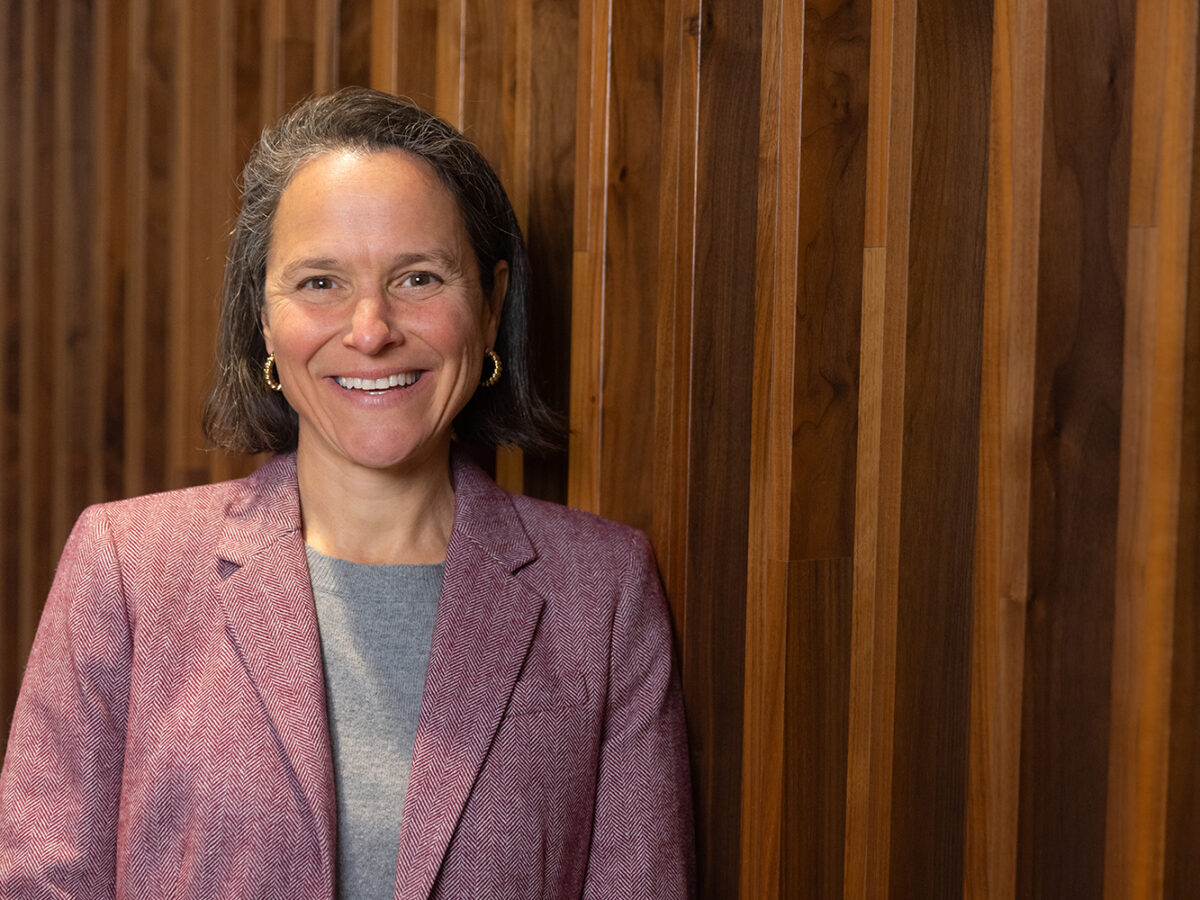Exeter chooses ‘teacher at heart’ as next principal

Jennifer Karlen Elliott will be the 17th head of school in the Academy's 244-year history.
Phillips Exeter Academy has chosen Jennifer Karlen Elliott to lead the school’s next chapter and serve as the Academy’s 17th principal.
Academy Trustee President Kristyn Van Ostern ’96 introduced Elliott in a letter to the Exeter community Monday afternoon. Elliott will succeed Bill Rawson ’71; ’65, ’70 (Hon.); P’08, who will retire as principal next spring after eight years in the role.
Elliott is currently the head of student and academic life at Choate Rosemary Hall, where she is responsible for nearly all aspects of the student experience across academics, residential life, wellness and community culture.
“When I learned of the opportunity to lead Exeter, I was immediately drawn to the mission, the core values, and the community,” Elliott said. “I have long admired and respected Exeter’s commitment to academic excellence, Harkness and non sibi.”
The announcement concludes a rigorous search that began in February when Rawson made known this school year would be his last as principal. Elliott was chosen after a global search that connected the committee with over 400 educational leaders. She formally begins her new role on July 1, 2026.
“Jenny is a teacher at heart who, from the earliest stages of her career, has been called to leadership roles of increasing responsibility,” Van Ostern said in her announcement. “In Jenny we have found someone who understands the demands of leadership in residential education, finds joy and purpose in working with adolescents and has indicated a strong commitment to upholding the Academy’s mission while leading us into the future. We are excited to welcome her to our community.”
Elliott’s contributions at Choate include leading efforts that examine how technology influences teaching and learning, progress toward their sustainability goals and attention to student well-being through a new advisory system and redesigned cell phone and social media policy. Each initiative reflects her commitment to student growth, academic excellence, belonging, and meaningful change.
“I gravitate to team contexts where our collective impact is deeper for our shared efforts,” Elliott said of her leadership style. “I love partnering with colleagues who push my thinking, inspire me to ask better questions, and find joy in our work. I am a student-centered leader who has deep respect and admiration for the educators who commit themselves to the growth and care of young people.”
Van Ostern said Elliott has a deep “understanding of the rhythms and responsibilities of boarding school life,” adding that she “listens deeply, collaborates naturally, and brings clarity and focus to complex challenges” and “models the curiosity and adaptability that define great educators and leaders.”
Before joining Choate, Elliott worked for 12 years at her alma mater, Phillips Academy in Andover, where she held several leadership positions, including seven years as dean of students and five years as assistant head of school for residential life, taught U.S. History, and coached varsity girls squash.
A 1994 graduate of Andover, Elliott earned a bachelor’s degree in history from Dartmouth College, a master’s degree in elementary education from Lesley College and expects to earn a doctorate in education from Vanderbilt University in 2027.
“I love that Principal Rawson’s leadership has invited and celebrated progress,” Elliott said. “Schools are living communities dedicated to the changing needs of our students.
“The dynamism of this present moment will require us to sharpen what is core and lead with courage, integrity, and creativity. Optimistic and energetic, I see the challenges of this moment as opportunities for exciting progress.”